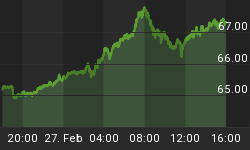So much for BMW’s challenge to ride-sharing giant Uber—at least for right now: The British luxury label’s DriveNow car-sharing company has halted operations in Stockholm, Sweden, after failing to attract enough interest from residents after three years of trying.
Low demand, congestion taxes and parking fees reportedly rendered overhead an impossible profit equation.
In 2011, DriveNow teamed up with Sixt on this experience, and then earlier this year, BMW took the whole thing over in a $243 million deal, making it the sole owner of DriveNow. In 2015, it launched in Stockholm, with a fleet of 260 vehicles.
It’s aim was to win 100 million customers for this “premium mobility service” by 2025, according to BWM board member Peter Schwarzenbauer.
They even joined forces with rival Daimler—the owner of Mercedes and the brains behind Car2Go—in order to overtake Uber and Waymo.
It should have been a bad omen when Car2go withdrew from Stockholm in late 2016, citing the same reasons that DriveNow is citing.
But DriveNow is struggling to make money on car-sharing elsewhere, too. According to BMW's annual report, the car-sharing segment lost some 17 million euros in 2017.
At the same time, Uber is expanding fast—and far. It now operates in 600 cities across 78 countries. Last year alone, the service booked four billion rides.
The idea behind DriveNow was the car version of popular bike-rending services: Users pick up and leave cars anywhere within a specified area. It’s operating in 13 European cities, with a million registered users, according to BMW.
But we wouldn’t write off DriveNow just yet …
Related: Europe’s EV Sales Growth Is Slowing
According to Global Market Insights research, the global car-sharing market is set to exceed $11 billion by 2024, with 20-percent growth year-on-year as the costs of transport decline. The same research company says that the entire “mobility on demand” market will exceed $200 billion globally in the next six years.
Why? Customers are moving away from car ownership, insurance and repairs and maintenance. And owners are losing a lot to depreciation. In other words, at the end of the day, car-sharing is cheaper and easier, so most think it’s going to catch on, while DriveNow is considered one of the key players in this market.
According to the Transportation Sustainability Research Center, the monthly transportation savings for round trip car sharing members in the U.S. ranges from $154 to $435.

(Click to enlarge)
Source: Global Market insight
As of October 2016, car-sharing was operating in 46 countries on six continents, with an estimated 2,095 cities and approximately 15 million members sharing over 157,000 vehicles.
Asia, the largest carsharing region measured by membership, accounts for 58 percent of worldwide membership and 43 percent of global fleets deployed. The world’s second largest carsharing market, Europe, accounts for 29 percent of worldwide members and 37 percent of vehicle fleets, according to Transportation Mobility Research Group.
BMW also has another trick up its sleeve: DriveNow has just launched a combination car-sharing/ride-hailing service in the U.S. city of Seattle, hoping to directly challenge Uber and Lyft while at the same time expanding the car-sharing offering. The new service is ReachNow, and it’s a reboot of DriveNow, stateside.
The service is live as of last week, and it’s hoping to first take Seattle, and then expand to other U.S. cities.
By Damir Kaletovic for Safehaven.com
More Top Reads From Safehaven.com:
















